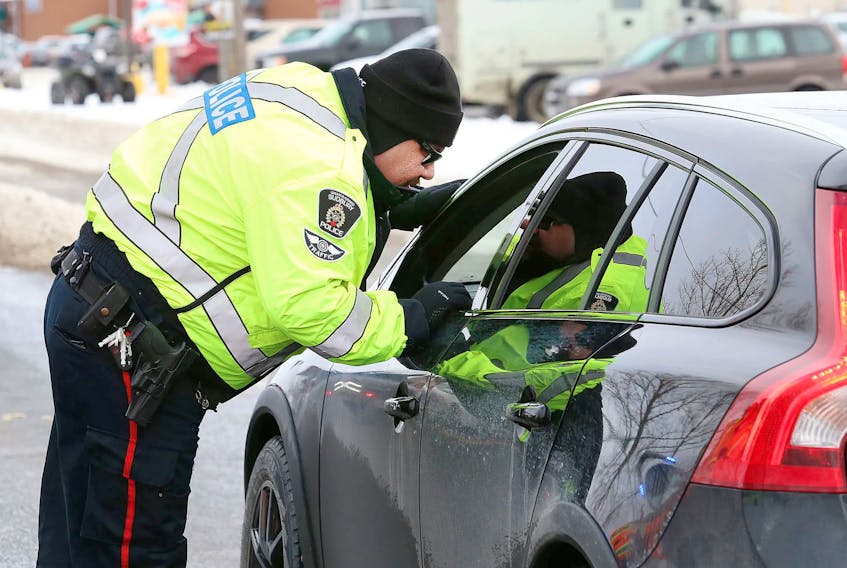A few weeks ago, we reported on police forces that publish the names, ages, and locations of those who have been charged with impaired driving.
“Name-and-shame” is a concept that has been used for centuries.
Indeed, when newspapers became popular fodder for the great unwashed, such listings were a main driver of their popularity, and profit.
Prince Edward Island, charged with impaired:
10:45 a.m.: Oct. 11, 2020 — 31-year-old
4:15 p.m.: Oct. 11 2020 — 63-year-old
But, when it comes to impaired drivers, some forces have tested it as a last resort: they can’t figure out any other way to get escalating impaired rates down, as fatalities and injuries go up. The problem is that no study exists that says it works. Embarrassed and humiliated drivers may end up clearing their names at the end of the process, but after their neighbours and co-workers have banged the gavel on their assumed guilt.
You can’t un-ring a bell and jobs, reputations, and relationships could end up as collateral damage. Still, we shouldn’t throw out valuable information if we can find a way to use it responsibly.
Vancouver, B.C., charged with impaired:
4 a.m.: Jan. 8 — transport truck driver, also structural damage sustained to Iron Worker’s Memorial Bridge
Police blotters contain the names of those charged with major crimes. Media outlets pick and choose which cases they follow through to trial and publish or withhold those names accordingly. There is an argument to be made that impaired driving is a major crime, like assault or burglary, or drug possession.
In Ontario, Halton police publish weekly the names of those charged with impaired driving. Thunder Bay does, too, though York Region abandoned the idea a year after implementing it.
Halton Region, charged with impaired:
11:30 a.m.: Jan. 19 — 29-year-old
5:30 p.m.: Jan. 21 — 37-year-old
2:30 p.m.: Jan. 22 — 28-year-old
What if there is a middle ground? What if there is a way to get valuable information to the public from the reports, without compromising individuals who may end up being cleared? I think all drivers deserve a clear snapshot of who they’re sharing their roads with, and every winter season, every area kicks off its impaired-driving campaigns to much fanfare and heavy messaging. Highlighting the problem of impaired drivers on our roads is a significant concern. So how can we do it fairly?
Halton Region, charged with impaired:
5 p.m.: Jan. 22 — 35-year-old
7 p.m.: Jan. 22 — 24-year-old
7:30 a.m.: Jan. 23 — 21-year-old

What if we could glean important information from police reports without compromising anyone’s right to privacy? Many published police reports have started removing gender identifiers from their articles because it is irrelevant in many cases. This is true with impaired charges. What is relevant? I’d argue ages are, because we are wrong to assume there is only one segment of the population represented in impaired cases.
Halton Region, charged with impaired:
6:30 p.m.: Jan. 23 — 51-year-old
4:30 p.m.: Jan. 24 — 45-year-old
1:30 p.m.: Jan. 29 — 45-year-old
But more important than even that, is the times these charges are occurring. We tend to think impaired drivers are primarily the bar crowd, the after-hours partiers, the Hockey Night in Canada or Grey-Cuppers heading home.
We are wrong, and it is that information that needs to be highlighted more than names, genders, or ages. We need to be aware people are driving impaired on our roads as our kids are walking to school, as we exit the dentist’s parking lot, as we drive home from work.
Barrie, Ont., charged with impaired:
5 p.m.: Jan. 30 — 55-year-old
1 p.m.: Jan. 30 — 33-year-old
I don’t have some sick fascination with poring over police records to see if someone I knew in high school got busted. It is constantly jarring to see when these offences occur. If I’m out driving at midnight, I assume everybody is a drunk, and I pause a little longer when a light turns green and cut a wide berth around someone who can’t keep to their lane. Paranoid? Nope, just cautious.
Police are grateful for tips that come in from the community, and many impaired charges are instigated by reports from the public.
Halton, Ont., charged with impaired:
3 p.m.: Jan. 14 — 39-year-old
6:30 p.m.: Jan. 15 — 36-year-old
7 p.m.: Jan. 17 — 57-year-old
But maybe stripping identifiers from these postings could give us all more information that is pertinent. Maybe we’d be reminded more often that drivers can be dangerous at any time of the day.
Marco Muzzo wiped out three children and their grandfather in Vaughan at 4 o-clock in the afternoon back in 2015. His blood alcohol was at three times the legal limit and, while he was released on parole last year after serving a whopping four years for killing four people, he has a 12-year driving ban that began upon that release.
It isn’t just in the wee small hours of the morning. Impaired drivers are a 24-hour threat.









